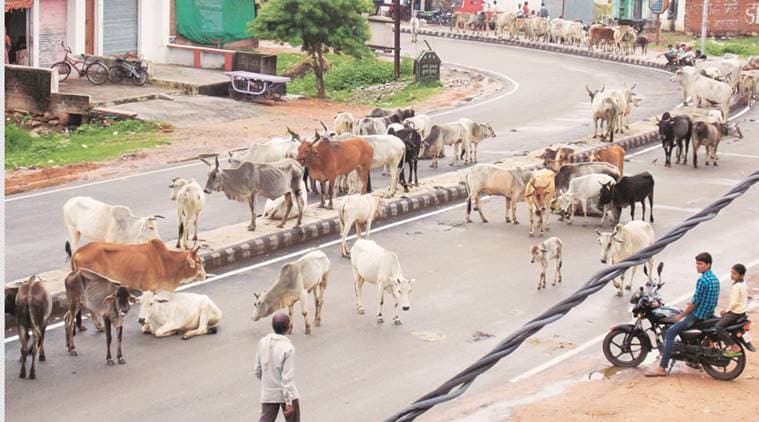India is home to over 280 million cows

India is Home to Over 280 Million Cows

India, a country known for its rich cultural heritage and diverse traditions, is also home to a staggering number of cows. With over 280 million cows, India has the largest population of these gentle creatures in the world. Cows hold a revered position in Indian society and are deeply ingrained in the country’s religious and cultural fabric.
Cows are considered sacred in Hinduism, the dominant religion in India. They are believed to be a manifestation of the divine and are worshipped as the embodiment of the mother goddess. This deep-rooted reverence has contributed to the significant rise in the number of cows in the country.

Apart from their religious significance, cows play a vital role in the Indian agricultural sector. They are the primary source of milk, which is an essential part of the Indian diet. Milk and its byproducts like ghee (clarified butter) and curd (yogurt) are staples in Indian cuisine and are used in various culinary preparations.
In addition to their role in the food industry, cows also contribute to the organic farming practices prevalent in India. Cow dung is used as a natural fertilizer, enhancing the fertility of the soil and promoting sustainable cultivation. The urine of cows is believed to have medicinal properties and is used in Ayurvedic medicine.
The large population of cows in India has both positive and negative consequences. On the positive side, it helps in meeting the high demand for dairy products in the country while supporting the agricultural industry. However, the sheer number of cows also poses challenges.
One major challenge is the management of cow waste. With such a vast population, the amount of cow dung produced in India is significant. Proper disposal and utilization of this waste are essential to prevent environmental pollution and health hazards. Efforts are being made to promote the conversion of cow dung into biogas, which can serve as a clean source of energy.
Another concern is the impact of cow emissions on climate change. The digestion process of cows releases methane, a potent greenhouse gas that contributes to global warming. This aspect has raised environmental debates and garnered international attention. Mitigation measures, such as dietary changes in cows’ feed, are being explored to reduce their methane emissions.
In conclusion, India’s remarkable population of over 280 million cows holds immense cultural, religious, and economic significance. They play a crucial role in providing dairy products, supporting organic farming, and maintaining the country’s religious traditions. However, proper management and sustainable practices are required to address the challenges associated with cow waste and emissions. India continues to strive towards finding innovative solutions to ensure the well-being of these revered creatures and the environment.
Source: The New York Times
Related Posts
Quick Links
Legal Stuff

